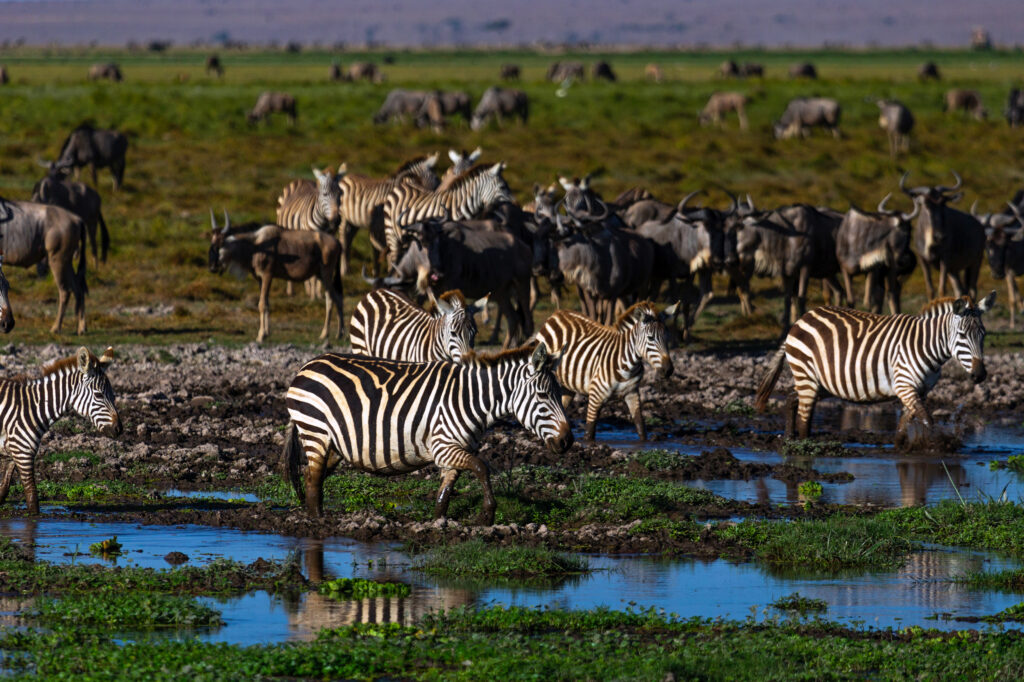On a bright and clear day, Gillian T. Davies reached the end of a winding dirt track where armed guards waited.
The ecologist from Massachusetts was attending an international conference on wetlands that would influence the future of the world’s fastest-disappearing ecosystems. The sessions were not going well. So, on the conference’s break day, Davies hired a local guide and headed deep into the African bush to find one of the threatened species that frequent the wetlands she’s fighting for.
The guards, clad with AK-47-style rifles slung over their shoulders, were a round-the-clock team protecting a crash of white rhinoceroses from poachers. Davies felt a surge of gratitude for the men, but wondered: What had her species become that such a thing was necessary?
The scene was a visceral echo of what she saw playing out at the conference, a meeting of the parties to the 1971 Ramsar Convention on Wetlands, one of the oldest environmental protection treaties. Despite governments’ vows to protect them, one-fifth of Earth’s wetlands have been destroyed. Of what remains, a quarter are in ecological distress. Few people know either of those facts or why they matter.
Vilified in the past as wastelands, the watery ecosystems are in fact a linchpin of planetary stability, with their moist soils sequestering more carbon dioxide per unit than forests. With unmatched efficiency, they act as Earth’s kidneys, filtering pollution and recharging drinking water sources while preventing storm damage and flooding. For scores of communities, wetlands are a cradle of culture, a source of sustenance and a home.
Publicly, Davies has been part of the cacophony of scientists sounding increasingly dire alarms about the accelerating pace of wetland loss. Privately, she came to believe something more was needed. Existing laws, she thought, aren’t enough: Humans are driving life on Earth to a perilous place.
So, she came to the conference in July with ambitious plans. Wetlands, she would argue, should have the highest form of protection the law provides: rights.


